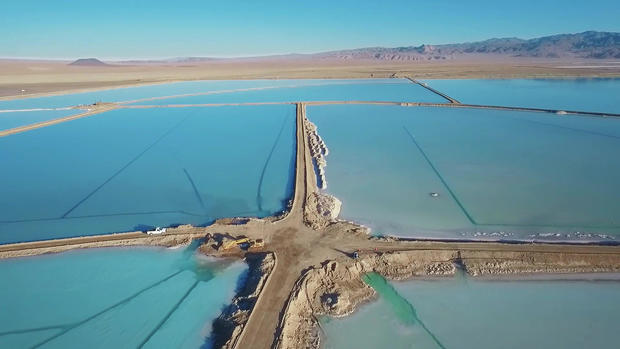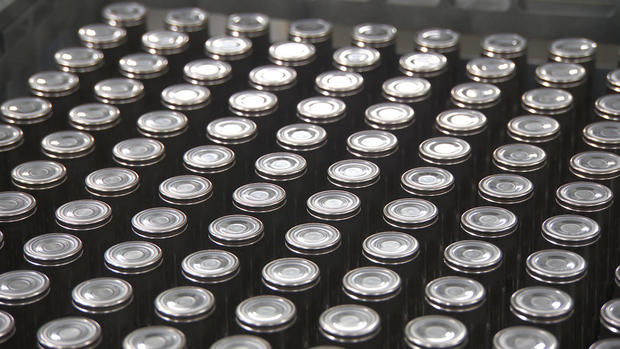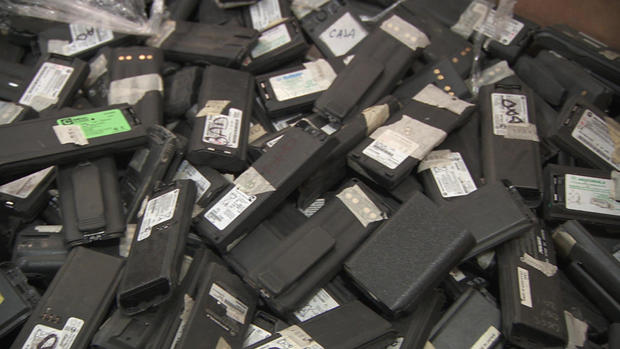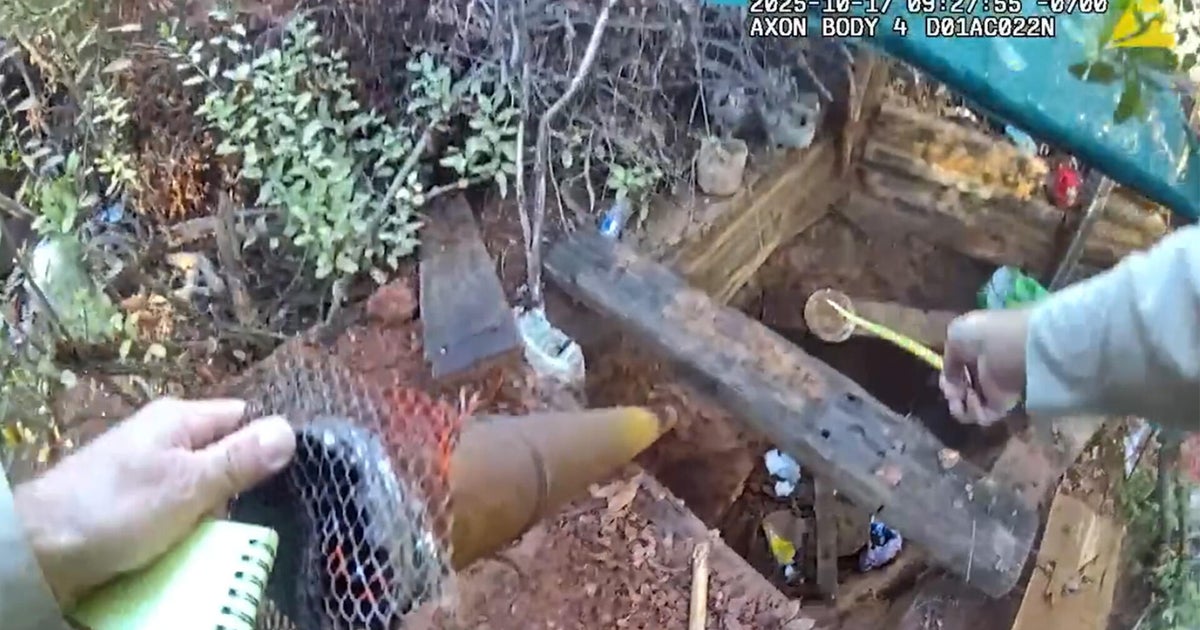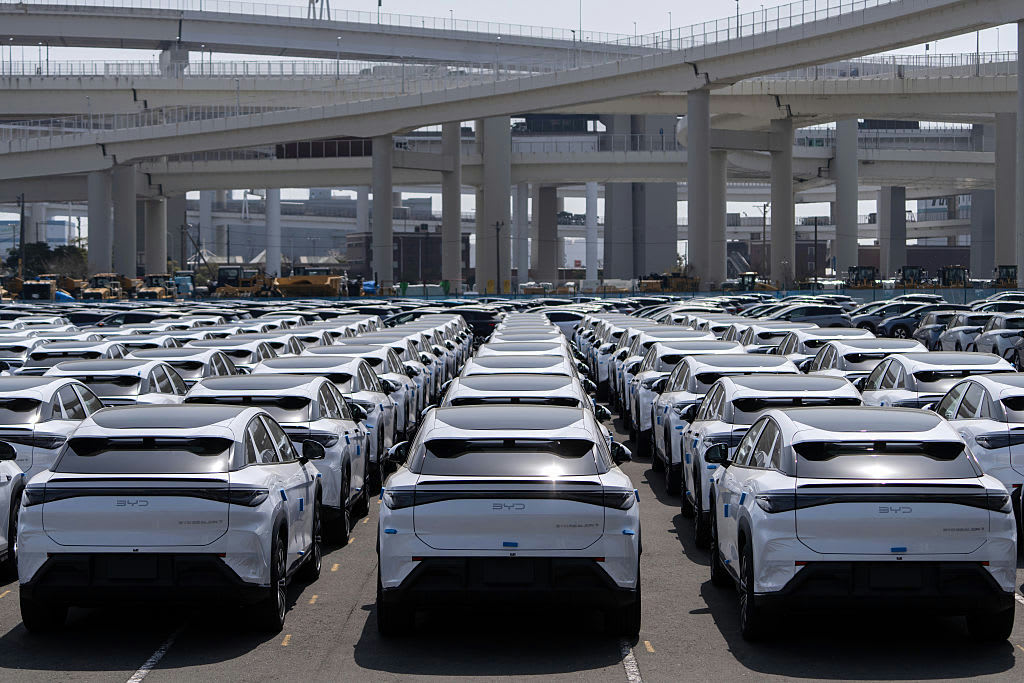Batteries and the new "lithium gold-rush"
In the mountains of northern Nevada, the fuel of the future lies in the shadow of the past. Sixteen million years ago, the area now called Thacker Pass was the site of a giant volcanic eruption … and volcanologist Tom Benson has been searching the world for places just like it.
He says an eruption here millions of years ago left behind the key to unlock the electric vehicle revolution.
It's called lithium, the lightest solid element on that chart most of us only periodically remember from high school chemistry. Rechargeable lithium ion batteries are what power our cell phones, computers, even toothbrushes, and are now the fuel for all those electric vehicles starting to roll off the assembly line.
Correspondent Ben Tracy asked, "What's the connection between volcanoes and lithium?"
"Pretty much all lithium comes from volcanoes," Benson said.
"In the coming years, when people are driving their electric cars down the road, there's a good chance the lithium in that battery will come from here?"
"Yes, that's the hope."
Benson works for Lithium Americas, a mining company that owns the rights to Thacker Pass, the largest known lithium deposit in the United States. The company expects to potentially extract 80,000 tons of lithium a year. That's enough to power about a million vehicles.
"It's really the blood in a battery," said Jonathan Evans, president of the company. "Without it the batteries won't work."
With automakers pledging to soon make most of their vehicles electric, lithium demand is expected to increase as much as tenfold in the next decade. Right now most of it is mined in Chile and Australia, and almost all of it is processed in China.
The United States has just one lithium producing mine, in southern Nevada, providing less than 2% of the world's supply.
Tracy asked, "Is it an option for the U.S. not to be in this field and to let other countries supply this?"
"I think the answer is no," Evans replied. "We have a lot of competitors in the world that, if we don't do something about it, others are going to be happy to."
"And one of those countries is China?"
"Yes."
"How far behind are we?"
"Years, decades."
Jumpstarting the switch to EVs is key to President Biden's plan to cut U.S. greenhouse gas emissions in half by 2030 to slow climate change. "The future of the auto industry is electric," Mr. Biden said in August. "There's no turning back."
The Department of Energy has released a national blueprint for lithium batteries. It says relying on other countries creates a "strategic vulnerability" for the U.S. economy.
Allan Swan, the president of Panasonic Energy of North America, said, "We are right at the beginning of this journey, and therefore what's ahead of us is so huge."
Swan runs the largest lithium ion battery factory in the world, just outside Reno, Nevada. It produces two billion batteries each year. All of them are for just one electric car maker: Tesla.
Tracy asked, "Do you guys ever shut down? Does this ever take a break?"
"Nope. never stop," said Swan. "24/7, 365 days a year. We don't stop."
The batteries are made on the Panasonic side of a massive facility known as the Tesla Gigafactory, and then robots, humming along to the theme from the "Super Mario Brothers" video game, drive them to the Tesla side, where they are put inside the cars.
"What do we as a country need to do, or what do companies need to do, to meet this new demand?" asked Tracy.
"We don't have a supply chain here in the U.S.," said Swan. "We have to work hard at that. If we get that right, we're going to rock in America, which will be really powerful."
"Are we going to see more battery factories like this all over the country?"
"Yeah, fundamentally yes. I mean, it's not even touching the bottom of the barrel at this point. So, it's a long way to go."
Those factories will need a lot of lithium, which is why J.B. Straubel, the CEO of Redwood Materials, and a former Tesla executive, said all those lithium batteries need to be recycled.
"The sheer number of batteries and the sheer number of vehicles, is massive," he said. "If there is no scaling ahead of time and no solution ready, it could become a big challenge."
Trucks arrive at his Carson City warehouse every day, loaded with boxes of old batteries, from electric cars to power tools. His company is partnering with Ford to help turn old batteries into new ones. Ford just announced plans to build two massive battery manufacturing plants in the U.S.
Straubel said, "I think recycling the batteries is a must. The material is coming at us, and we don't really have a choice of should we or should we not recycle it."
Lithium is now so valuable it's called "white gold." There's believed to be billions of dollars' worth of it at Thacker Pass alone. And while it may be essential to a greener future, getting it out of the ground comes with its own environmental cost.
"The claim that this would be a 'green mine' is extremely dangerous," said Max Wilbert, part of a group of protestors who have been camping out on the Thacker Pass mine site since January. He said lithium is not the silver bullet many believe it to be, because of the impact of mining on the land and the large amounts of wastewater created by lithium extraction.
Tracy asked, "If we're trying to move away from fossil fuels, is the environmental impact at a site like this the lesser of two evils?"
"That's a really good question, but I think the problem is, that's the wrong framing," Wilbert replied. "Global warming is a huge problem. But in this attempt to save the planet from climate change, people are actually believing that we can save the planet by destroying it."
Lithium Americas admits there will be environmental impacts, but claims new mining technology will lead to less damage. The company plans to begin its operation next year, potentially creating a lithium boom town in nearby Winnemucca, Nevada.
Evans said, "If you believe in climate change, if you are worried about competitiveness, if you are worried about jobs being lost, then assets like this, development like this, in the U.S., is necessary."
For more info:
- Lithium Americas
- Panasonic Energy of North America
- Tesla Gigafactory
- Redwood Materials
- Protect Thacker Pass
Story produced by Chris Laible. Editor: Remington Korper.

